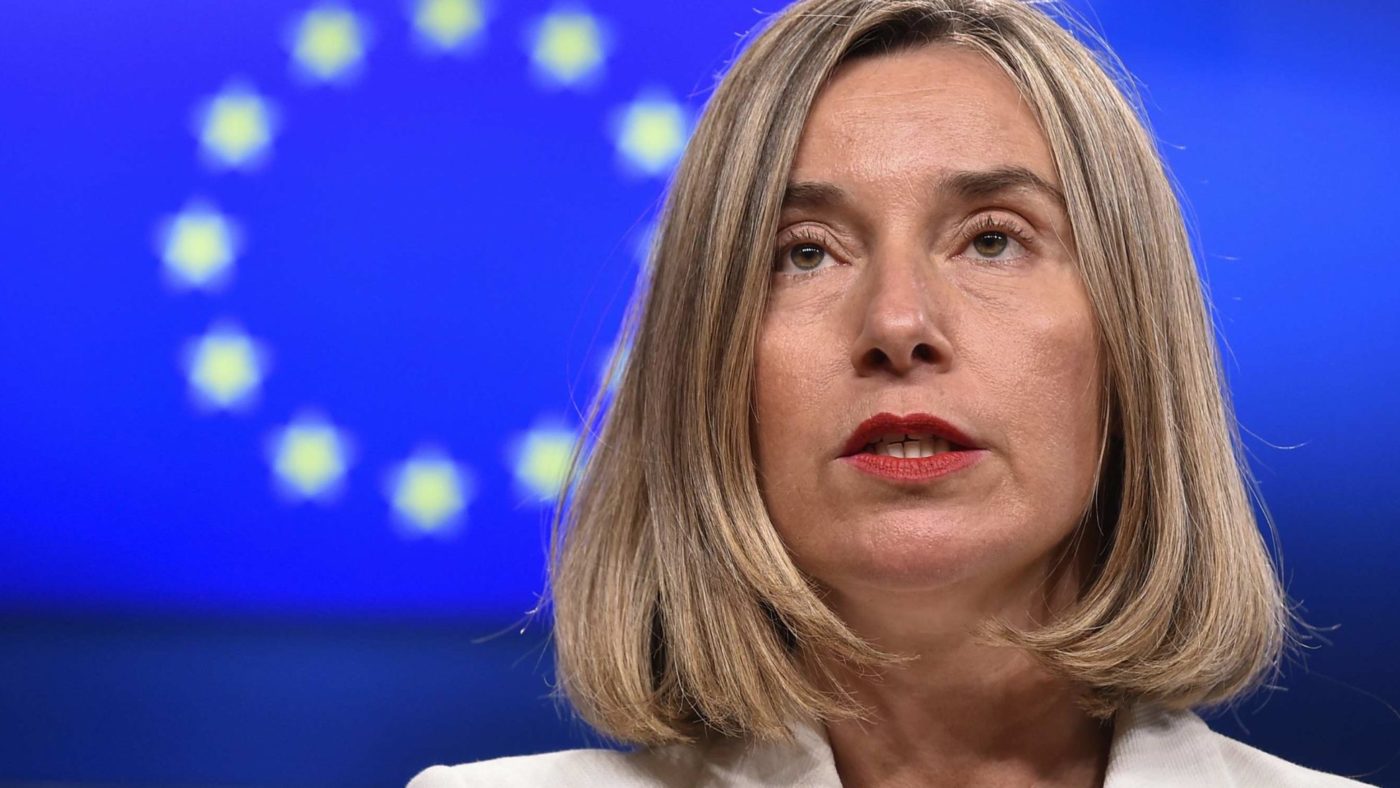Much has been said about President Trump’s decision to withdraw from the Iran nuclear deal. There is however a decidedly odd, and telling, feature of the world’s reaction to it that has garnered relatively little attention and even less reflection. That is the sharply differing reactions of the EU on the one hand, and the US, Israel, and Saudi Arabia on the other.
While Israeli Prime Minister Benjamin Netanyahu and the Saudi leadership welcomed Trump’s decision, the EU, led by its chief diplomat Federica Mogherini, is attempting to salvage the Iran deal by any means possible. Whatever you think of the deal, and Trump’s decision to withdraw from it, it is surely worth asking why the Europeans see Trump’s decision as catastrophic, while the Israelis and Saudi enthusiastically cheer for it.
The Europeans, and others eager to salvage the Iran nuclear deal, say that it is the best available option for preventing Iran for developing and acquiring military nuclear capabilities. They fear that the collapse of the deal will push Iran along a catastrophic trajectory. On the face of it, this answer is perfectly logical. Given that the putative purpose of the deal was prevent Iran from developing nuclear weapons, it seems reasonable to think that the collapse of the deal would make that eventuality more likely.
However, if these are indeed the fears of the Europeans with regard to the withdrawal decision, then why aren’t they shared, and even felt to a greater extent, by the Israelis and Saudis? After all, there is no doubt that the latter two countries have the most to lose from Iran’s possession of military nuclear capabilities. They are Iran’s more immediate neighbours and arch enemies, and will be the first to feel the brunt of such an outcome. There are a number of possible explanations for this anomaly.
The first explanation of the above discrepancy in attitudes to the Iran deal is that Europeans are more aware of, and attuned to, the security needs and interests of Israel and Saudi Arabia than they themselves are. That is highly improbable — though not impossible. It assumes that the Israelis and the Saudis approve the destruction of the only available agreement that has the prospect of preventing Iran from acquiring a nuclear bomb. On this view, the Europeans are acting paternalistically to protect them from their own folly. The picture painted by such an explanation is one of Europeans trying hard to prevent the mindless Saudis and Israelis from self-destructively jumping from a window that Trump has stupidly opened for them.
One may indeed accuse the Israelis and the Saudis of many culpable deeds and attitudes. But one can hardly accuse them of being ignorant or reckless about the security needs of their countries or regimes. If anything, the Israelis and Saudis may be accused of being excessively concerned by security concerns at the expense of other considerations.
Another explanation is that the Europeans, contrary to what they say, are not really concerned about the possibility of Iran attaining nuclear capability, but are more worried about the destabilising effect of the collapse of the Iran nuclear deal on the region of the Middle East, since they will be the first targets of any refugee crisis or terrorist activities induced by such instability.
This fear of instability in the region is a more plausible explanation. According to this theory, the Europeans are not truly motivated by what they claim to be their aim, namely preventing Iran from acquiring nuclear capabilities. They are not, then, truly in a position to alleviate the fears of the Israelis, the Saudis or the US of a future nuclear Iran.
Yet it is not clear on what grounds the Europeans think that the Iran deal will contribute to stability in the region. The deal itself does not address regional conflicts, nor does it make any attempt to find a way to normalise or organise the relationship between Iran and other rival countries in the region.
Indeed, the Israelis and the Saudis see the deal and the lifting of the sanctions that went with it, as having boosted Iran’s regional ambitions, and they have acted accordingly by giving priority to confronting Iran and its allies. This has led to more, rather than fewer, direct or proxy wars between Iran and its enemies. What is needed for stability in the Middle East, as far as Iran is concerned, is a deal (or deals) between Iran its regional enemies. Such a deal should of course be sponsored by international powers. On the other hand, the existing nuclear deal between Iran and these international powers which excludes other regional players does nothing to generate the desired stability.
There are, for sure, other less flattering possible explanations of the European enthusiasm for the Iran deal. Foremost among them are the economic benefits that have accrued to their countries, and companies within them, from the lifting of sanctions on Iran. Whether or not such considerations play in role in the current European position on the Iran nuclear deal, they were and remain irrelevant to the raison d’être of the deal.
It is also possible that the European’s strong opposition to Trump’s decision to withdraw from the Iran deal is motivated, at least partially, by the widely shared tendency to view the deeds and words of the current president of the US as being, at the very least, insensitive to the needs of world peace and stability, and as driven by discreditable motives.
Whether such views of Trump are correct or not, we would be committing a fallacy of ad hominem to assume that all what Trump does must be wrong.


